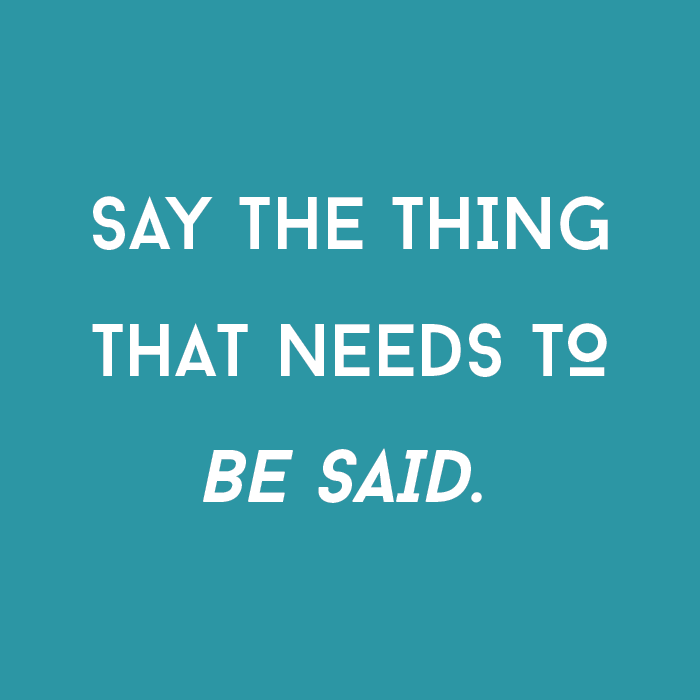Saying hard things is… hard. If the truth is true, why can it be so difficult to reveal it? To shine light on the ugly underbelly of reality? It’s not saying the words that’s hard. It’s all the subtext that goes with the text. And as a woman in tech, it seems there are very few things that can get categorized as easy. One would hope the truth would be one of those things. It’s not.

A few months ago, I found myself directly hearing and witnessing sexual harassment at a tech start-up that was, well, surprising. It wasn’t shocking because of the disgusting language or the words themselves, but because this startup, by all standards, was super progressive in its hiring practices. Nothing about it struck me as a Silicon Valley-esque bro-den. There were lots of women and people of all ages. In fact, I was attracted to this place because of the fact that it seemed so different from what I would expect.
And yet, even in the best of circumstances, there was blatant sexually dismissive language being thrown around.
As a female geek or woman working in tech, many of us haven’t faced discrimination or violent language head on. We’ve heard it on the periphery. We’ve witnessed it happening to other women, like Anita Sarkeesian or the other women involved in Gamer Gate. We’ve seen it used for comic relief in television and movies. So hearing it first hand or being the target of it, can actually be paralyzing.
But here’s the thing, we MUST REFUSE to be silent.
I work in the intersection of two industries that have traditionally been dominated by men: production and tech. I’ve always felt blessed to be the lady squirrel in a forest full of dudes. It’s served me incredibly well and actually made me bolder, stronger and braver than I ever thought I could be. However, despite all this experience and knowledge, I too, was totally let down and deflated by witnessing this sexist BS. And I hate to say that it took me weeks to say anything.
But I did say something. I said: hey, this is not OK. And guess what, I survived it.
These principles don’t just have to apply to hearing sexist language, I might add. We know what’s wrong when we hear it. Too often, we think it’s US and not THEM. It’s neither. It’s just being able to decipher between right and wrong.
So, if you know it’s wrong, here’s some things to keep in mind when you go stand in that truth:
1. State the facts. The truth doesn’t lie. What did you hear. What did you see. When did you hear it. Who was there. Simple. Straightforward. To the point.
2. Write it down. Sometimes, it’s easier to start thinking through those facts if you take the time to pen out everything. No detail is too small. If you’re not sure - just say - you’re not sure, but get it on paper.
3. Don’t worry about being the morality police. It’s not your responsibility to decide who intended what or meant nothing or something. If you’re living by the ethos that you need to say something, then stick to the facts. Adding your moral perspective isn’t required.
4. Accept that this conversation will be uncomfortable and imperfect. This is undoubtedly the thing that keeps most people from saying anything. I’m here to tell you: it will be weird. You won’t like the way you say things. You will play over it in your head and wonder if you could have said or done something differently. You will analyze facial expressions and blinks. Just stop. Accept the reality of it and just give yourself kudos for walking into a socially challenging situation.
5. Follow up. In the circle of difficulty that this entire process will be, I assure you, the follow up is the easiest. The facts are on the table. The people who need to know, know. But letting them know that you are still thinking about it and want an action plan is an important detail. It makes others accountable and takes some of the responsibility off of you.
One of the things that I found so strange in going through this myself was that others kept asking me if I needed a “break” - time away from the job at hand or the people in the setting who had spoken the ugly words I had to report. This was perhaps one of the most upsetting things about the whole process, because it felt a little like I was being asked to exile myself for shining the light on the ugly.
Part of being a truth teller is being willing to stand strong in that truth and not hide.
Don’t hide. I’ll stand with you.